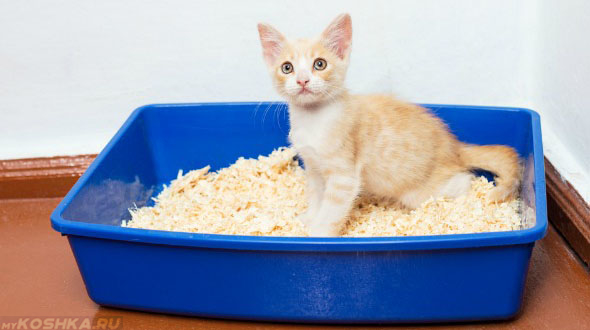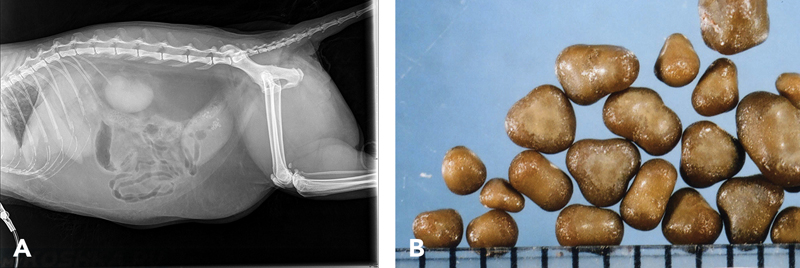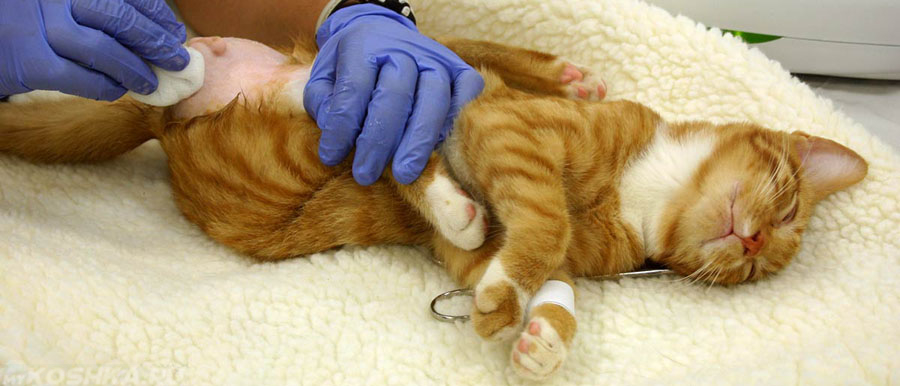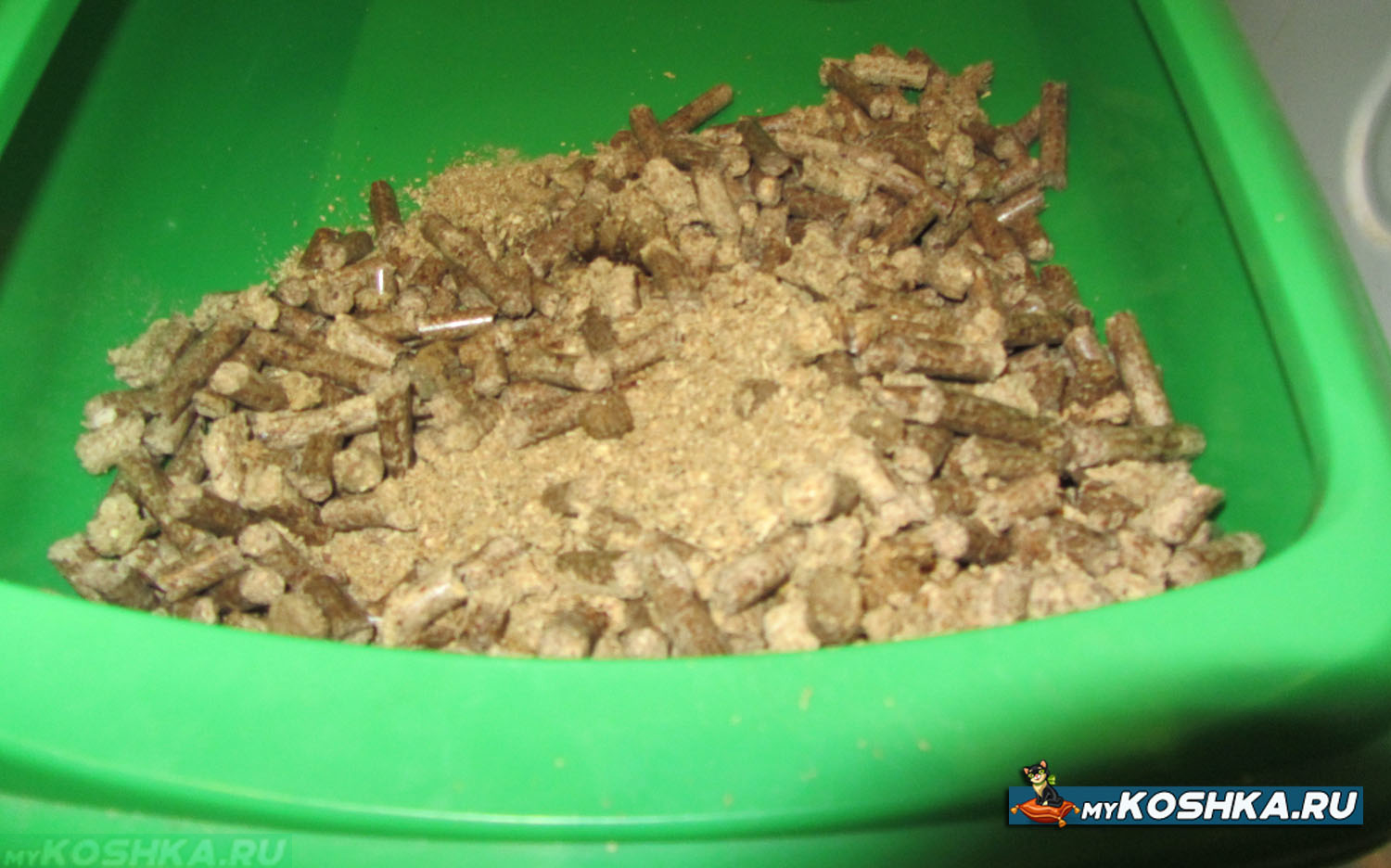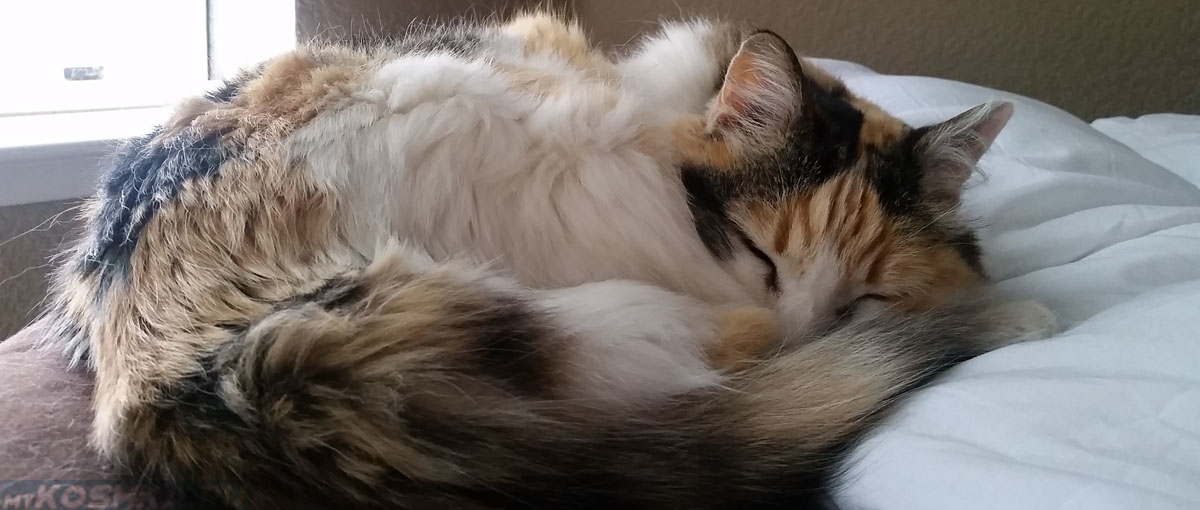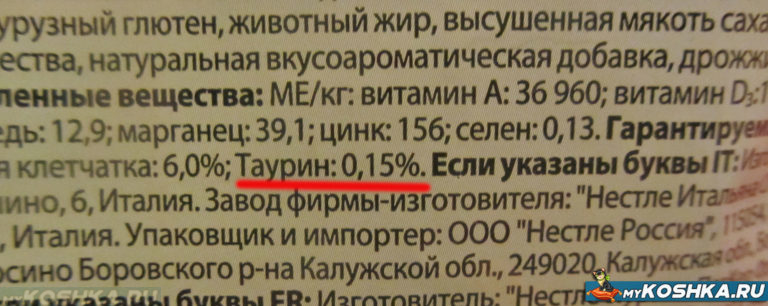Any host will be anxious if his pet has not gone to the toilet for a few days in a small way. There are many reasons for this. First of all, everything depends on the age of the cat, its nutrition and lifestyle, as well as the state of health.
Rates of urination in a cat and a cat
In kittens, the norm of urination is a couple of times a week.
Many owners, who recently took a kitten, often worry that the animal can not pee. In this case, there is no concern, if the animal is no more 5-6 weeks . Little kittens at this time wean from the mother who bathed them, and accustomed to the tray. Because of the small amounts of milk and water that they drink daily, as well as their small physique, urine does not form quickly.
So, up to 1.5 months the kitten can write 1-2 times a week, and there is no cause for concern.
By two or three months the physique of the animal is growing stronger, the genitourinary system is developing, and going to the toilet is a little increase to 1-2 times a day with normal nutrition.
Especially disturbing are unstable and infrequent trips to the toilet of the owners of adult cats, who are already over 1 year old.

As a rule, adult cats should write 2-3 times a day.
As a rule, animals should write an average of 2-3 times a day.
Of course, they can go to the toilet more or less depending on how much they drink liquids, and what kind of lifestyle they lead.
If a cat or cat does not pee one day, then there is no cause for concern, it is better to wait. Owners need to be alerted if urination has not occurred for more than two days.
The cat can not go to the toilet for a small reason:
The cat does not piss for more than two days? This is cause for concern.
If your pet has not gone to write for more than two days, or if urination is reduced to 1 time in several days, it is better to be alert, and how to help the animal as quickly as possible. A rare urination or complete absence of it can be indicative of. If you do not help the animal in time, then it will suffer.
Diseases
First aid
If the cat can not pee more than 3 days, surgery may be required!
If there is a rare urination in the kitten, there may be birth trauma, congenital defects in the development of the urinary system. In this case, it is better to contact the veterinarian, since, it is possible that an operation is to be performed. Another important reason is the tray. As a rule, kittens and cats love cleanliness, so the owners need to change the filler in time and thoroughly wash the cat's toilet with detergents.
Cats do not write a few days of stress, for example, after moving, when getting used to new owners. Rare urination is observed in pets suffering from obesity.
Reasons for concern
For a day the cat has written many times, it is visible on a tray. In the morning it was clean and the filler fresh. Frequent urination in a cat - an occasion to sound an alarm.
As for adult animals, whose urination was disturbed for the first time, first you need to pay attention to the appearance and well-being of the cat. There are reasons for concern if the animal has:
- There is no desire to go to the toilet a little more than two days.
- Too often (more than 5 times a day), while allocating a scant amount of urine.
- In the urine there is mucus, blood, small stones, crystals.
- When palpating a hard bladder is probed, the lower abdominal area may look swollen.
- No appetite.
- There is no mood, there is apathy, nervousness.
- The urge to enter the toilet is accompanied by a strong meowing.
- The cat sits in the tray for a long time and can not pee.
Measures of action in this case are obvious - it is necessary to show the pet to the vet. The doctor will appoint all necessary tests, ultrasound .
In most cases, special medicines and antibiotics, antispasmodics are prescribed, which help to quickly eliminate inflammation and the development of pathology.
In severe cases, a special crankcase is introduced, which contributes to the outflow of urine. For several days the animal walks with him, the cat is given a pet given prescribed antibiotics. If the case is started, then, perhaps, surgical intervention.
Possible treatment of urolithiasis in cats and cats
Most often, from urolithiasis, cats suffer. Feature of the body.
Problems with urination can occur in both cats and cats. As practice shows, often these diseases affect the male among animals due to the peculiar structure of the urinary system.
In cats, the urinary canal is narrower than that of cats, which, when exposed to various factors, adversely affects the work of this bladder and kidneys.
Which cats and cats are at risk?
Most often, cats and cats are over 10 years old!
Diseases affect all animals, regardless of whether they are sterilized. If the pet is more than 10 years old, then it is necessary to carry out preventive measures, look at his behavior, periodically undergo a veterinary examination. In case the animal feeds irregularly and incorrectly, spends a lot of time on the street, the age goes down, and the disease can appear much earlier.
After successful treatment of the disease, the owners should strictly monitor the ration of the animal so that there is no relapse, which is possible in 60% of cases.
How to avoid problems with hikes in a small way
Taurine: 0.15% in the composition of the popular cat food. Keep track of what is your pet.
- If your pet does not piss for two days already, or walks a little scantily and often, and in the urine there is blood, mucus, then urgently contact the veterinarianto help the animal.
- Support the weight of the pet is normal , do not let him overeat, as most animals suffer from obesity.
- Make sure that the pet not supercooled . Do not let it out for long on the street in cold and frosty weather. Do not let him often sleep on the cold floor.
- Watch out for purity of water , which you give him.
- The diet of a cat and a cat should be as useful and varied as possible . , give boiled meat, chicken, liver, cereals, soups. As for dairy products and fish, it is not recommended to refuse them completely, since they contain useful substances. Reduce their intake to 1 time a week.
- Watch out for cleanliness of the tray .
Acute urine retention in the cat on video
Conclusion
To your pet is always healthy and bring you joy, watch his mood, feed properly and never postpone the visit to the vet if there are good reasons for this.
In the group "Schools of Inspiration" VKontakte, novice authors often ask important questions about work on the work. Usually we answer in person, give short advice. But if the questions are widespread and really important, exciting for many authors, especially beginners, they should be answered in detail. In the article.
Sometimes it happens that nothing can be written at all - you can sit for hours on an empty page, or you get chapters of a story about anything - an order of magnitude worse than those written even yesterday. Are there ways how to deal with this? On the one hand, waiting for inspiration - life is not enough even for 1 book, on the other, writing something incomprehensible without the mood - is also not an option ...
Yuri Tashkinov
Here there are the following problems: a) inadequate study of all history and its individual episodes; b) loss of interest.
Let's analyze both points in detail.
On the importance of studying the history, or "In the morning, money - in the evening chairs"
From my own experience I can say that over a blank sheet is ignorance about what to write about. History is not worked out in detail. There is only an abstract understanding of what will happen next.
 For example, now, in the first chapter, the hero is at point A, but he must definitely get to point B of the chapter to the tenth. But there is no concrete understanding - a chain of events, according to invented and thought-out episodes, from chapter to chapter - no.
For example, now, in the first chapter, the hero is at point A, but he must definitely get to point B of the chapter to the tenth. But there is no concrete understanding - a chain of events, according to invented and thought-out episodes, from chapter to chapter - no.
It turns out, before you come up with and work out the idea, you immediately sit down to write. In the hope that I will start now, but in the process everything will come up. And it happens that it is invented. Also it is written. And sometimes it's decent. And sometimes - about anything. And worse than the day before. But sometimes for this you have to sit and look at the file, rereading the written, a few hours. And sometimes - even this does not help. And not invented, and not written at all.
What to do in this case - when not being written at all?
1. Do not sit down to write until you come up with a sequel and think through the episode.
Yes, "in the morning money - in the evening chairs." If you write in the evenings, then in the morning read through the last pages and during the day decide - how to turn the plot, where and why go to the hero, what will happen? Very well helps the method of questions -, the situation. And by the evening - to the beginning of the work - you will have chaotic, but still the idea of what to write about. And from the welter the benefit is extracted more quickly than from the void.
If there is a day for work, do not sit down to write at once. Think of an activity that does not stop thinking - take a walk half an hour, dismantle a bookcase, etc. For small thoughtless pursuits very well reflects. But not about the eternal. 🙂 And about what to write about the next episode.
I, for example, think all my books on the way to work and for household chores. An hour and a half in transport in one direction, without smartphones, books and tablets, when all the entertainment - only a fantasy, willy-nilly makes, actually, from this fantasy to benefit. And the dishes without washing it are also boring, yes 🙂 I remember the last paragraph and continue to build the scene in my mind - the dialogue of the characters, the description of the weather, etc. So, then the hands are itching to sit down and write down, so as not to forget.
2. Write sketches for the future.
If the continuation is obstinately not invented, leave this occupation. Probably, you have not come to the right thoughts. Think about other scenes - about the ending or the denouement. Think over them and write down - short sketches. This is also a study. And the collection of material. When it is typed enough, the question about what to write on, disappears by itself. It is enough to pick up all the sketches, look through them and build them into an event chain. And, of course, think about it. 🙂 What, why and why. In other words, work on the idea of the book.
And finally. Do not waste time on the empty seat behind the computer. If you do not come up with anything for a couple of hours, do other things. Yes, waiting for inspiration - life is not enough, but on the book the light does not converge with a wedge. Than all day frantically to force itself to write one paragraph, it is better to spend time with advantage. Make a pending case, watch a movie or read.
 By the way, I often notice that it is at such moments of relaxation when you do not force yourself to work, and interesting ideas come - either about new books, or about how to continue the old ones. The brain will still solve the task assigned to it. 🙂 And best of all it is not decided from under the stick, but in its time. Again, movies and books can push a sensible idea.
By the way, I often notice that it is at such moments of relaxation when you do not force yourself to work, and interesting ideas come - either about new books, or about how to continue the old ones. The brain will still solve the task assigned to it. 🙂 And best of all it is not decided from under the stick, but in its time. Again, movies and books can push a sensible idea.
About interest in history and work on a book
Remember the moments when you were invented and written easily (or relatively easily). What did this state accompany? Suitable atmosphere, good mood, music, interest in history?
A suitable attitude to work is, above all, an interest in history. If it is not, if you are interested only in the denouement, but not in the middle, there will be no mood. And inspiration too. Look for interest in each episode, on each page. Required. Of course, the book has such places, which you need to say about, but this subject is boring for you. Look at it from the other side. Sometimes it is enough just to see the situation differently, and otherwise present. With interest.
From myself I can say that I can not stand writing so-called "pink snot" - that is, clarification of relationships and all sorts of romantic explanations. Mentally they line up, but I can not write - it's boring. I sit down at the computer and I sit on the file for three hours. But sometimes these moments are needed - history requires. And I'm beginning to look for approaches - this can be said with humor, here you can put the banter instead of pathos, you can joke around playing the scene ... It helps a lot. 🙂
Also, in addition to interest in history proper, interest in the process is very important - to writing. It is necessary to receive pleasure from writing in writing, and it is to associate words with interest and weave images from them. The latter has a lot of problems - like to invent, but to write down - no longer exists.
If everything is thought out, thought out, but it's still written heavily, personally I use the method of "two penalty pages". It consists in the following. You determine the approximate time for which you need to write two pages. Gather with thoughts, time and sit down to write. And do not get up from the chair, do not go online until you write. And be sure to keep within certain, say, two hours, so as not to stretch the "pleasure" for a day.
Why this volume - two pages? As a rule, 2-3 pages are enough for us, either to brutally get tired of scratching out words, or to sign, feel a word and be imbued with lost interest. And after two pages I either put a point and close the file, or I continue to write hard - but without the given time and volume, how many will be - so much will be obtained. I do not warm my head with the quality of the material. For this is not the meaning of the draft. 🙂
 About the "bad text" and the chapters "about nothing"
About the "bad text" and the chapters "about nothing"
Resign yourself to the fact that the book "about what" - where every episode, every fact, every word on the spot - you the first time will not write ever. Dot. And no one will ever write, even writers with an abyss of experience. The integrity of the text, the depth of meaning and the beauty of the images are achieved by grinding. This, testing and again editing. And, you see, it's foolish to begin polishing an unprepared detail. First you need to do it. Write a draft, let it lie down and re-read. And only then take up grinding.
Therefore, you write boldly even the chapters "about nothing". Then you rewrite them, finish them, cut them in the end. It's just text, words. Learn how not to pity them. It's just stuff. Any artisan uses the source material to create a creative product. Writers have these words. Personally, I cut out for one editorial, "sweep" out of the text under two author's sheets - it's 40-50 pages of text. And - no - it's not a pity. 🙂 And sorry - cut and leave in drafts. Just so that it was.
The text "about nothing" has its own important function - it connects you to the story even when it is not written. He helps you to sign, to fill your hand. It supports the working mood. Bad text is training.
Sooner or later a habit of writing will be developed - at first simply every day, then - every day for "two fine" pages. Then - more. And if you feel that writing is your way, then experience will come after the habit. And with experience - and ease. And the pleasure of work. And from history, of course.
 And one more important point. Perception of the text - any, your or someone else's - largely depends on the momentary emotional mood. Now you have a bad mood after hard work, and the writing seems to be a tongue-tied delirium. Try to reread it after two weeks, in a good mood, like someone else's text. And you probably will see the difference. And, quite possibly, you will think - and not so everything is bad. 😉
And one more important point. Perception of the text - any, your or someone else's - largely depends on the momentary emotional mood. Now you have a bad mood after hard work, and the writing seems to be a tongue-tied delirium. Try to reread it after two weeks, in a good mood, like someone else's text. And you probably will see the difference. And, quite possibly, you will think - and not so everything is bad. 😉
Again, based on my own experience, I can say that sometimes heavy and "labor" text is better than written in a fit of inspiration. The text given with difficulty is more thoughtful, logical; you for every word in it are struggling and clinging. And put every word in its place. And if not ... Words are only material for stories. 😉 And the material is recruited and developed over years of practice.
Write, as it turns out. Write, when it turns out. The main thing is to finish the draft. Bring it to the end. Give the draft to lie down. And only then - grind, cut and put in order. When the story is over, you see more clearly and clearly what is wrong in the text.
Dear participants of the School of Inspiration!
Cystitis is the inflammatory process of the wall of the bladder, which can be of a microbial nature or non-microbial (reactive cystitis). The inflammatory process can take place in acute or chronic form, which depends both on the reactivity of the organism and on the effectiveness of the treatment.
Cystitis is one of the most frequent urological diseases, about which a person seeks medical help.
Causes of cystitis in men
The causes of cystitis in men can be divided into two large groups:
The last group of reasons includes:
Initially, the non-microbial inflammation gradually becomes an infectious cystitis, since the damaged mucosa becomes more susceptible to microorganisms. The most frequent pathogens of the inflammatory process in the bladder are staphylococci, E. coli, streptococci, proteins and others.
Thus, the primary disease that affects the initially healthy body, and secondary cystitis, which develops in an already unhealthy organism, is isolated.
Cystitis in men: symptoms
The clinical picture of cystitis is completely dependent on the severity of the process. The brightest symptoms occur in acute cystitis. Cystitis patients complain of pain in the lower abdomen, cuts during urination, which can occur at any time of the act of urination (at the beginning, in the middle or at the end). Also, men note the presence of imperative urge to urinate ("I want to go to the toilet, but it does not work out"). The temperature at a cystitis at men is uncharacteristic symptom which appears only at sharp depression of protective forces of an organism (on a background of a HIV-infection, oncological diseases, etc.). also fever can occur with purulent inflammation of the wall of the bladder (for example, with phlegmonous cystitis). In this case, patients are flabby, apathetic, general inflammatory manifestations, urine becomes very muddy due to pus, impurities of fibrin filaments, necrotic tissue, etc.
Chronic cystitis can occur in the form of two clinical forms:
- the first is that men are constantly concerned about complaints, the severity of which is negligible;
- in the second case, cystitis proceeds as a wavy process, during which periods of exacerbation and remission alternate. During the exacerbation of the disease resembles acute cystitis.
Diagnosis of cystitis in men
On the basis of clinical signs, one or another disease can be suspected. If the doctor suspects the presence of a cystitis in the patient, then additional methods of investigation are shown, which will make it possible to clarify the diagnosis. Most often it is necessary to conduct a general clinical analysis of urine, in which signs of inflammation will be revealed. These include the presence of leukocytes in the urine in large quantities, bacteria, as well as protein. If the bladder wall is damaged significantly, erythrocytes can be detected in this assay, but their number is significantly inferior to the number of leukocytes (this is a differential diagnostic feature that makes it possible to distinguish cystitis from glomerulonephritis).
In addition to this study, it is shown that in difficult diagnostic cases, especially in chronic cystitis, cystoscopy and cystography. Cystoscopy is an endoscopic method that allows visualization of the mucosa of the bladder. Cystography is an X-ray method that evaluates the structure and capacity of the bladder. Can be performed with or without use of contrast agents.
To exclude the oncological process in suspicious cases, it is recommended to perform a biopsy (during a cystoscopic examination) followed by a histological examination. It is the "gold" diagnostic standard in oncology.
Treatment of cystitis in men
Cystitis is very treatable, since the mucosa of the bladder has a good regenerating ability. The only exception is gangrene of the bladder, in which the disease severely depletes the body's reserves and can even lead to a fatal outcome.
Treatment of acute cystitis in men begins with the introduction of spasmolytic drugs that will help cope with the pain syndrome and normalize the passage of urine. Usually, no-shpa and anticholinergics such as atropine and platyphylline are used. Treatment of cystitis with antibiotics in men is central, since it allows the death of pathogenic microorganisms. Use those drugs that are sensitive to urogenous bacteria. The most commonly used group penicillin, cephalosporin and macrolides (they are preferred in the presence of intracellular pathogens, since these drugs penetrate well inside the cell). In parallel with the presence of an acute inflammatory process, abundant drinking and diet food are prescribed. Against the background of these measures, the process of regeneration of the mucous membrane of the bladder proceeds faster and better.
Treatment of chronic cystitis in men should be comprehensive with the mandatory elimination of a possible cause of chronicization of the process. Usually it is about any anatomical defects, the presence of stones in the bladder, etc. Therefore, to normalize urodynamics, surgical treatment is used. During the exacerbation, antibiotics are indicated, and physiotherapy procedures are widely used outside of the exacerbation.
Prevention of cystitis in men
Prevention of cystitis in men is an important task that will help to maintain reproductive health. Measures to prevent the development of this disease include the following:
In conclusion, it should be noted that cystitis is the most common disease among all urological diseases of men. From the timely diagnosis and treatment depends on the subsequent health of man, including reproductive. Therefore, it is necessary to seek medical help, without waiting for an independent resolution of the pathological process.

